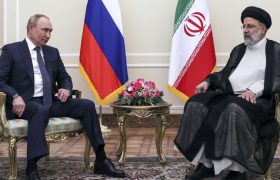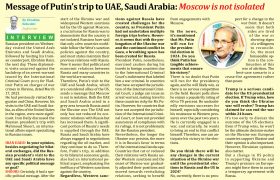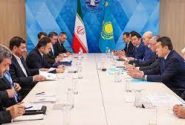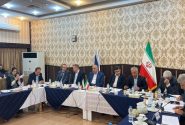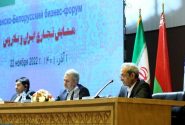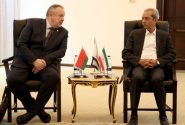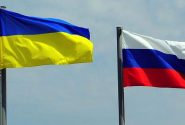Dr. Ahmad Kazemi, speaking in an interview with the website of the Strategic Council on Foreign Relations, saying that during the recent visit of the President of Azerbaijan to Moscow a declaration, entitled the declaration of coalition or allied interaction was signed between the two countries for declaring bilateral unity and strategic cooperation, noted: The trip was not planned in advance, and even after the start of the Russian invasion of Ukraine, which was considered as a kind of endorsement and support by Baku, was sometimes referred to as a summons to Moscow. In addition, due to the fact that in that declaration, clauses for structural changes in the relations between the two sides in different fields have been considered, it has been in the spotlight of the analysts.
Clear contradiction with past policies
He mentioned the political, economic, energy, cultural and military issues between the two sides as among the issues considered in the declaration and added: In Clause 7 of the Declaration on Allied Interaction emphasis has been put on the strategic partnership between the two countries, and at the same time Baku has pledged to refrain from implementing any new or previous strategic partnership with countries that would be contrary to Russia’s interests. This clause seems to contradict the “Shusha” Declaration, which was signed between Erdogan and the Republic of Azerbaijan during Erdogan’s visit to Shusha last year and created a strategic alliance between the two sides.
Explaining the anti-Russian actions and policies of the Republic of Azerbaijan in recent years in various fields, Kazemi said: Refuse to deal with countries that are against Russia’s interests. This clause seems to contradict the “Shusha” statement, which was signed between Erdogan and the Republic of Azerbaijan during Erdogan’s visit to Shusha last year and created a strategic alliance between the two sides.
The international law expert added: Clause 11 of the Declaration on Allied Interaction prohibits any activity of opposition groups on the territory of the two countries, whether nationals or other groups, and in Clause 15, the Republic of Azerbaijan undertakes to prepare the ground for joint military production with Russia in its country. In fact, the process that the Republic of Azerbaijan had chosen in previous years, according to which it had given priority to military cooperation with the Zionist regime, Turkey and NATO, will be changed through this clause.
He referred to the commitments of the Republic of Azerbaijan to Russia in the field of energy and the consideration of mutual benefits in those areas and said: According to the declaration, the Republic of Azerbaijan should refrain from pursuing unilateral plans within the framework of US and NATO interests in the past in the energy lines of the region.
Saying that the declaration was so hastily prepared that Mr. Aliyev, in his press conference, Kazemi stated that the number of provisions was 40 clauses instead of 43 clauses which was corrected by Mr. Putin. Experts and analysts of the Republic of Azerbaijan have always argued that the country is not fundamentally considered as independent in its macro-foreign policy and has always tried to advance the situation with a positive balancing strategy and giving special privileges to influential actors.
The author and researcher of on the Caucasus and Russia affairs, referred to the recent developments in the region and the recognition of the independence of Donetsk and Luhansk in the Republic of Ukraine by Russia as the cause of fear in the officials of the Republic of Azerbaijan and the rapid signing of the Declaration on Allied Interaction, adding: Baku is concerned about the possibility of Russia recognizing the independence of Karabakh autonomous region in the coming years. According to the ceasefire agreement in Karabakh, with the deployment of thousands of Russian troops for five years, Russia has found the opportunity to provide the infrastructures of this region either for annexing to itself or for recognizing the independence.
Beginning of Russia’s punitive policy
Saying that Russia has begun punishing countries that have turned to NATO without hesitation in recent years, he added: Obviously, member states of the Guam Pact, including Ukraine, Georgia, Moldova and the Republic of Azerbaijan, are at the forefront of Russia’s punitive policy. It seems that it will be Karabakh’s turn given Russia’s measures in the case of Moldova, Georgia and Ukraine. According to the declaration, Baku gives the guarantee to Russia that it will change the line of relations it pursued with Turkey and gives Russia big concessions not to implement the formula it envisions for Karabakh and even the Lezgian areas in the north of the Republic of Azerbaijan.
Russia’s historic opportunity in Karabakh
He added: Russia’s approach to Eurasia and the midland surroundings in recent years shows that if Moscow cannot fully influence the sovereignty of the countries in that area and prevent their pro-Western approach, it will try to use their weaknesses, including the separatist areas, as a focal point for spot positioning. The Republic of Azerbaijan knows that if Russia makes such a decision about that country, NATO will not have any effective means to prevent it. Because Baku itself has provided the ground for the presence of Russian forces in Karabakh, and this has provided a historic opportunity for Russia.
Regarding the possibility of pursuing the goals of the Republic of Azerbaijan and Turkey in establishing a corridor of communication in accordance with the recent agreement with Russia, the international law analyst said: After the 44-day war, the Republic of Azerbaijan concluded that Turkey had largely pursued its goals by using the Karabakh war as a tool and through helping Baku to liberate the occupied territories. Such as, Turkey is fulfilling its historical expansionist ambitions in the region by creating the imaginary Zangezur corridor.
Saying that Baku officials have realized that instead of returning Karabakh to the Republic of Azerbaijan, Ankara is looking to use the conflict as a tool to normalize relations with Armenia and resolve its problems with that country, he noted: Baku officials are becoming more aware of the geopolitical realities of the region and have found that Turkey’s ambitious policies in the Caucasus are against interests of Russia, China and Iran and will put Baku at the forefront of significant costs.



